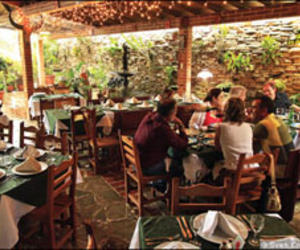Cuba's economic changes create new entrepreneurs
- Submitted by: manso
- Business and Economy
- 01 / 30 / 2011

(AP:HAVANA) When Julio Cesar Hidalgo looks past the rotten window frame and the coarsely laid concrete, he envisions his shabby living room as a standup pizza joint, with the rich smell of garlic and oregano wafting out onto a warm Havana street.
He sees a gleaming white countertop laid with sandwiches, pastries and balls of yeasty dough; a gas oven in the corner bakes mouthwatering pizza.
After Cuban authorities announced last September that they were opening the island's economy to a limited amount of private enterprise, Hidalgo was one of the first to line up for a new business license. In a land of modest dreams, the 31-year-old baker says his is simple: to be the master of his own labor.
"It's not going to make me rich," he laughs, adding that he may make only a little more than he does now in a $12-a-month job at a state-run bakery. "But I'll be working in my own home and I'll be my own boss."
Hidalgo and tens of thousands like him are chasing their entrepreneurial ambitions in 2011, Cuba's year of economic change, hopeful that a sweeping fiscal overhaul announced last year by President Raul Castro is for real. The Cuban leader said the country would lay off half a million state workers by March 31, while granting licenses for a broad, if slightly random, array of businesses.
The new entrepreneurs face towering challenges in getting businesses off the ground, including high taxes, a lack of raw materials, an uncertain customer base, labyrinthine bureaucratic rules and limited access to startup capital. Yet their success or failure will go a long way in determining the future of Cuba's revolution.
The Cuban state now employs 84 percent of the island's workers and controls 90 percent of the economy,if the free-market experiment works, the government could shed millions of dollars from its payroll while boosting much-needed tax revenues and creating a new business and consumer class. It could also legalize part of a booming black market that provides everything from sausages to satellite television.
Through Jan. 7, more than 75,000 people had received new licenses, joining about 143,000 private-sector workers left over from the island's last dabble with capitalism. Government economists say they hope a quarter of a million new entrepreneurs will eventually sign up.
But for now, excitement reigns among the new entrepreneurs.
"We are going to be a success. I am sure of it," says Gisselle de la Noval, 20, Hidalgo's bright-faced girlfriend who will work the till at the pizzeria and share in its profits. "This (economic) opening was marvelous. ... I think those who know how to take advantage of it will have a bright future."
A DISMAL STATE OF AFFAIRS
Cuba's push to open its economy to private enterprise is based not on an ideological change of heart, but on necessity.
The economy has been slammed by the global economic downturn, a drop in nickel prices and the fallout from three devastating hurricanes that hit in quick succession in 2008. Revenues from tobacco, rum and sugar have fallen, as have remittances from Cubans living overseas, many of them in recession-hit South Florida.
Prevented from borrowing from international monetary institutions by the 48-year U.S. trade embargo, Cuba was forced to reduce food and other imports from its main trading partners by 37 percent.
The economy grew by just 1.4 percent and 2.1 percent, respectively, in 2009 and 2010, a terrible performance for a small, developing country.
For the first time since the 1960s, Cubans will be able to employ one another, rent out their homes and cars more freely, and hope to one day get business loans from state banks. Raul Castro has even called a Communist Party Congress for mid-April in which the reforms will be enshrined as the country's only way forward.
The government has made it easier for Cubans to rent space to each other, but there is no retail property for private citizens, and few would have rent money even if there was. Most people must either carve out part of their home, or come up with creative ideas to get around the real estate shortage.
Maria Regla Saldivar, a 52-year-old black belt in Taekwondo, beams with excitement as she walks through the ruins of a destroyed industrial laundry. She is petitioning the government to turn over title to the property so she can transform it into a gymnasium, and meanwhile is using a small park nearby to hold fitness classes.
The building has no roof or walls, and the oil-stained concrete floor is littered with truck-sized pieces of rusted machinery, but Saldivar is not deterred.
Her bigger worry is that authorities have not included martial arts in the list of acceptable activities. Salazar says she will either have to limit her classes to aerobics, or "inventar," a Cuban specialty that roughly translates as "to improvise."
"I don't plan to give Taekwondo classes," she deadpans. "I'm teaching the kids 'Quimbumbia,'" Salazar's word for a discipline remarkably similar to Taekwondo.
CHALLENGES AND OPPORTUNITIES AHEAD
Another challenge facing the private sector is taxes, which can be as high as 50 percent, not including social security. The taxes could make it difficult for new businesses to break even, and could scare many people already making a living on the black market from becoming legitimate.
Source: http://news.ino.com/headlines/?newsid=689762675790
Comments